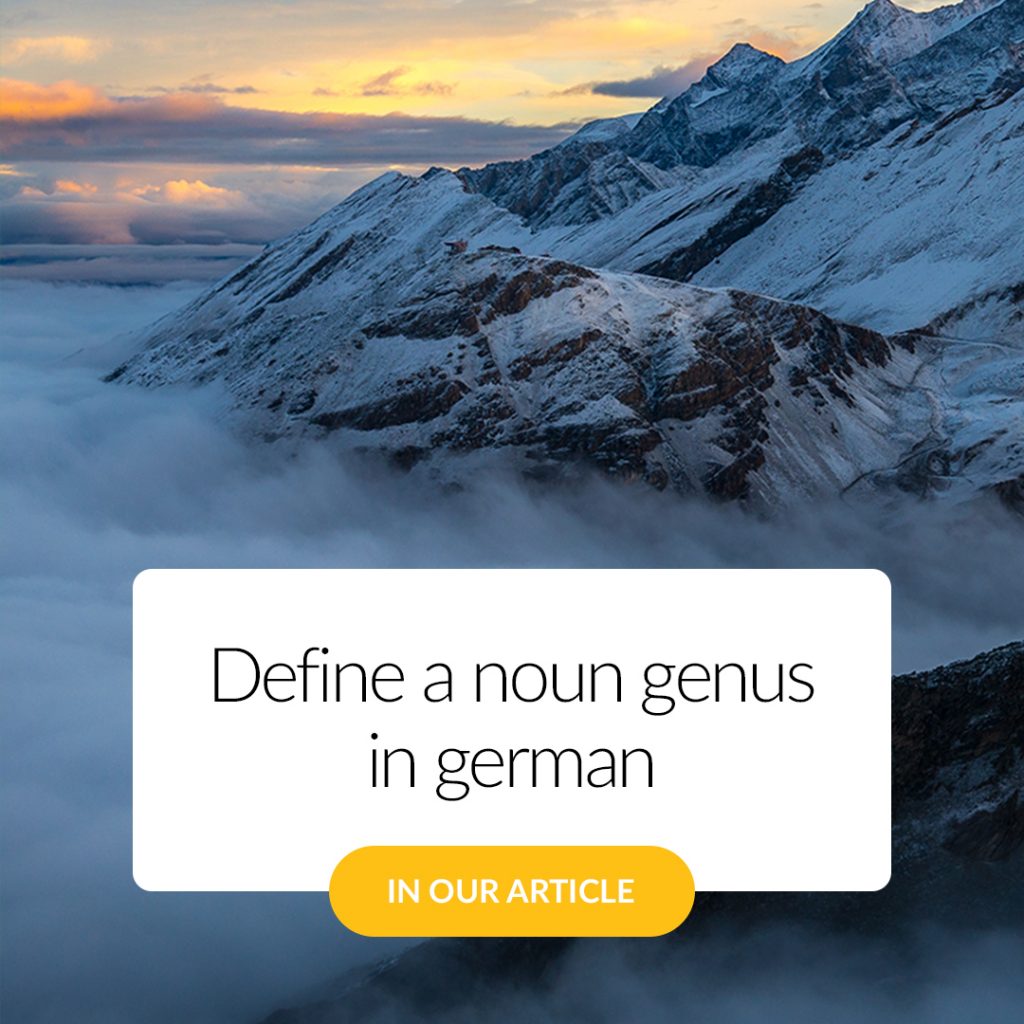Some people think that it is impossible to determine the gender of a noun name in German, it just needs to be notched. But it’s not quite true. There are a number of regularities that are very likely to help to determine a noun name genus.
Masculine:
- All males and animals: der Mann is male, der Elefant is elephant.
- All alcohol: der Senkt is champagne, der Wein is wine, but das Bier is beer (the only exception).
- Time periods: der Morgen – morning, der Montag – Monday, der September – September, but die Stunde – hour, die Nacht – night, die Woche – week, das Jahr – year.
- Sediments: der Regen – rain, der Schnee – snow.
- Car brands: der BMW, der Mercedes;
- Rocks and minerals: der Brillant – diamond, der Granit – granite.
- All words with endings -er (der Fahrer – driver), -ismus (der Nihilismus – nihilismus), -ling (der Lehrling – student).
- Foreign words with endings: -ent, -ant, -ist, -et, -ot, -at, -soph, -nom, -graph, -eur, -ier, -ar (-är), -or (der Astronaut – astronaut, der Ingenieur – engineer, der Sekretär – secretary). But this is only for lively creatures. The uninhabited are mainly of the middle class: das Referat – abstract.
- Nouns formed from verbs with a changed root vowel: der Gang, walking (from gehen, walking).
Feminine:
- Feminine: die Mutter – mother, die Ärztin – female doctor.
- Motorcycle brands: die BMW (for motorcycles of this manufacturer).
- Quantitative numerals: die Eins – unit.
- Names of plants: Rose – rose, die Eiche – oak, but der Ahorn – maple.
- Words with endings: -heit, -keit, -schaft, -ung (die Hoffnung – hope, die Schlaflosigkeit – insomnia).
- Nouns formed from verbs with -t: die Fahrt – journey (from fahren – journey).
- Foreign words with endings -ade, -age, -anz, -enz, -ik, -ion, -tät, -ur (die Marmelade – marmalade, die Garage – garage, die Tendenz – trend, die Qualität – quality, die Agentur – agency).
- Almost all German words with endings: -e, -ei, -ie, -in (die Lampe – lamp, die Bäckerei – bakery, die Philosophie – philosophy, die Lehrerin – teacher). Exceptions: der Name – name and many foreign words.
Neutral:
- Nouns formed from verbs without change: das Schreiben – writing, das Essen – food.
Almost all chemical elements: das Aluminium – aluminium. There are only 6 exceptions, for example der Phosphor. - Metals: das Blei – lead. But die Bronze, der Stahl.
- Decreasing forms with -chen and -lein ends: das Mädchen – girl.
- Most nouns with suffixes -ment, -nis, -o, -um, -tum: das Parlament – parliament, das Ergebnis – result, das Auto – car, das Museum – museum, das Eigentum – property.
- Many words that start with Ge-: das Gemüse – vegetables.
- Some words change depending on the article: der Band – book binding, die Band – music band, das Band – tape.
For some words you can use more than one article and everything will be correct: der/das Virus, der/die/das Nutella (nobody knows how to do it correctly).
All the above rules are not absolutely true, there are exceptions for almost everyone. But you shouldn’t remove the articles of all nouns when you can just understand these patterns.

